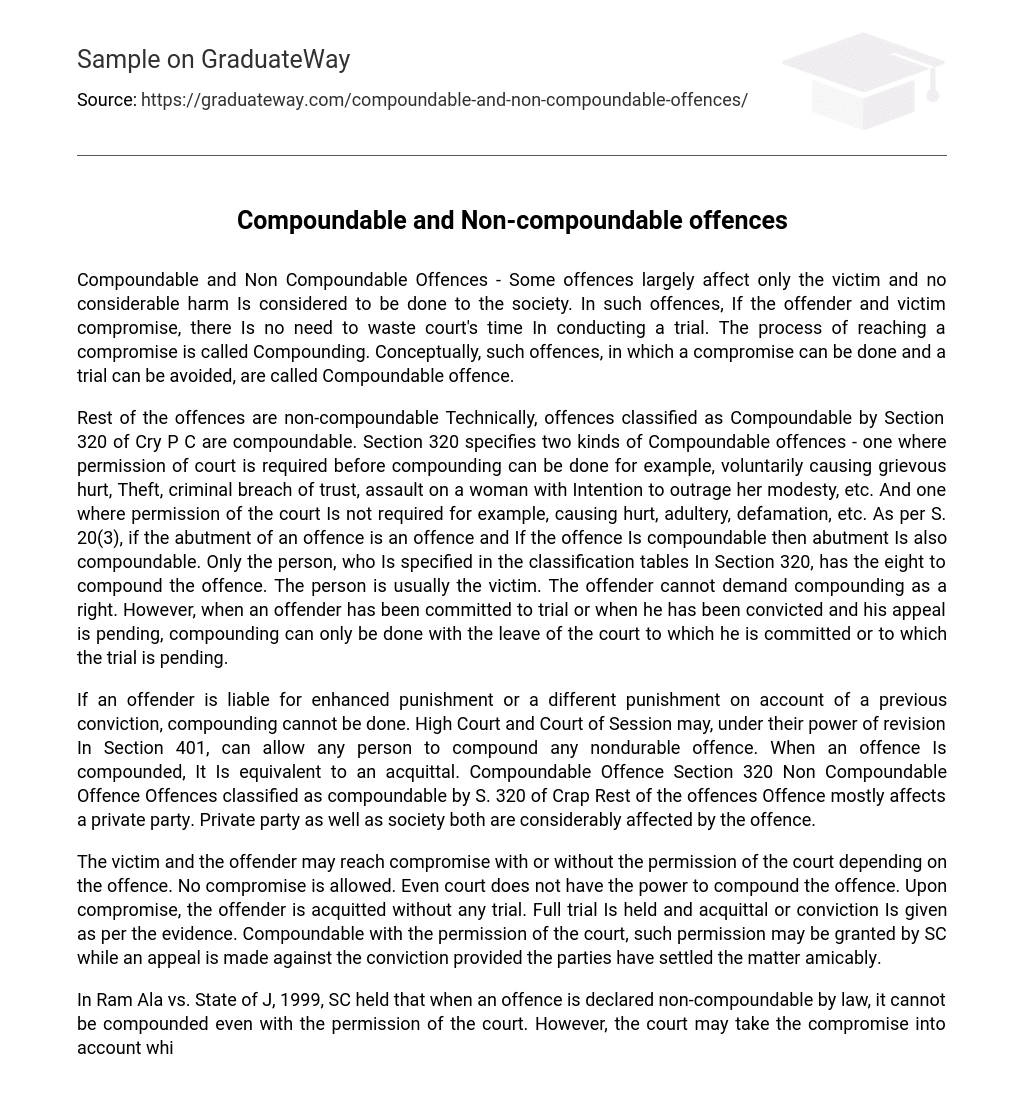Compoundable and Non-Compoundable Offences – Some offences primarily affect the victim without causing significant harm to society. If there is an agreement between the offender and victim, it is unnecessary to burden the court with a trial in these instances. This process of reaching an agreement is called compounding. Essentially, compoundable offences are those that permit compromise and avoid a trial.
According to Section 320 of Cry P C, offences classified as Compoundable can be compounded. There are two types of Compoundable offences mentioned in this section. One type requires court permission for compounding, such as voluntarily causing grievous hurt, theft, criminal breach of trust, assault on a woman with the intention to outrage her modesty, etc. The other type does not require court permission, such as causing hurt, adultery, defamation, etc.
S. 20(3) states that if an offence is abetted and compoundable, then the abetment is also compoundable. Only individuals listed in Section 320’s classification tables have the authority to compound the offence; usually being the victim. The offender cannot demand compounding as a right.
However, there are certain circumstances when court approval is required for compounding. For example , when an offender has been committed to trial or when he has been convicted and his appeal is pending , compounding can only proceed with permission from the relevant court.
If an offender has a previous conviction that results in enhanced or different punishment, compounding is not allowed. However, the High Court and Court of Session have the power, as stated in Section 401, to authorize the compounding of any non-durable offence. Compounding of an offence means it is treated as if the accused has been acquitted. Compoundable Offence Section 320 pertains to offences that can be compounded, while all other offences are considered non-compoundable. These non-compoundable offences encompass actions that primarily harm an individual but also have significant societal consequences.
Both the victim and the offender have the option to come to an agreement, with or without court approval, depending on the offense. However, there are certain offenses that cannot be compromised even by the court. If an agreement is reached, the offender is acquitted without going through a trial. Conversely, a complete trial occurs where a verdict of acquittal or conviction is determined based on evidence presented. The court may grant permission to compound some offenses if both parties have peacefully resolved their dispute and an appeal has been filed against a conviction – this permission typically comes from the Supreme Court.
The Supreme Court case of Ram Ala vs. State of J, 1999, established that if an offense is deemed non-compoundable by law, it cannot be compounded with court permission. However, the court can consider a compromise during the judgment process. A pertinent illustration of this principle is seen in B S Josh vs. State of Harlan, AIR 2003. In this particular instance, the offense under Section AAA was classified as non-compoundable. Despite reaching a compromise, the High Court declined to dismiss the First Information Report (FIR) on account of its non-compoundable nature.
The Supreme Court (SC) has determined that the powers granted by Article 226 or Section 482 of the Code can be used to prevent abuse of the NY court process or ensure justice. This power can be exercised even if there are no specific guidelines or an exhaustive list of cases where it should be used. In this case, the parties were not trying to compound the offense but rather have the FIR quashed. The SC observed that since an amicable settlement had been reached and there was no chance of conviction, the court had authority to dismiss the proceedings.





